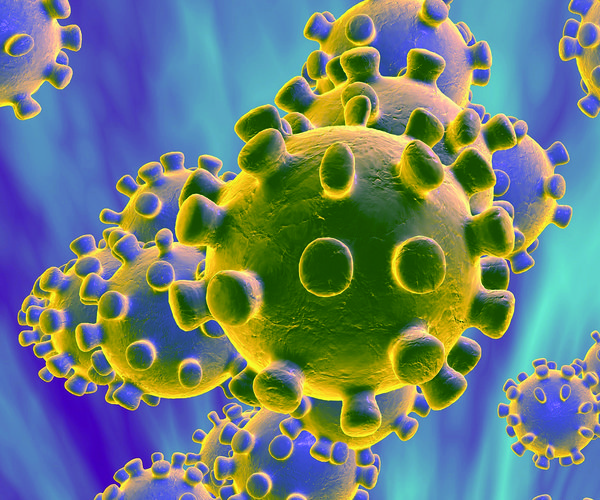By The Associated Press undefined
Most Americans expect the lost jobs to return once the coronavirus crisis is over. That's according to a new poll from The Associated Press-NORC Center for Public Affairs Research. Also, the maker of Lysol reminds people: Don't inject the disinfectant despite the suggestion by President Donald Trump. In other news, the stars of a sitcom will reunite for a show to raise money for the coronavirus.
Here are some of AP's top stories Friday on the world's coronavirus pandemic. Follow APNews.com/VirusOutbreak for updates through the day and APNews.com/UnderstandingtheOutbreak for stories explaining some of its complexities.
WHAT'S HAPPENING TODAY:
— One of every four American adults says someone in the household has lost a job to the coronavirus pandemic, but the vast majority expect those former jobs will return once the crisis passes, according to a new poll from The Associated Press-NORC Center for Public Affairs Research.
— Across the country, governors wrestle with weeks of quarantine-fueled job losses and soaring unemployment claims and the simultaneous warnings of public health officials who say lifting stay-at-home orders now could spark a resurgence of COVID-19. Meanwhile, a recent public opinion poll finds that a majority of Americans believe it won't be safe to stop following social distancing guidelines anytime soon..
— The parent company of Lysol and another disinfectant warned Friday that its products should not be used as an internal treatment for the coronavirus after President Donald Trump wondered about the prospect during a White House briefing. Trump noted Thursday that researchers were looking at the effects of disinfectants on the virus and wondered aloud if they could be injected into people.
— As Africa braces for a surge in coronavirus cases, its countries are dangerously behind in the global race for scarce medical equipment. Ten nations have no ventilators.
— The latest demonstration by right-wing groups against measures to contain the coronavirus is headed for Wisconsin, where hundreds of people or more plan to descend on the state Capitol to protest the Democratic governor's stay-home ordinance. The group won't include the state's most prominent Republicans like Trump ally, Sen. Ron Johnson.
— When the coronavirus pandemic came from distant lands to the United States, it was met with cascading failures and incompetencies by departments that exist to prepare, protect, prevent and cut citizens a check in a national crisis. The molecular menace posed by the new coronavirus has shaken the conceit of "American exceptionalism".
___
WHAT YOU NEED TO KNOW:
For most people, the coronavirus causes mild or moderate symptoms, such as fever and cough that clear up in two to three weeks. For some, especially older adults and people with existing health problems, it can cause more severe illness, including pneumonia and death. The vast majority of people recover.
Here are the symptoms of the virus compared with the common flu.
One of the best ways to prevent spread of the virus is washing your hands with soap and water. The U.S. Centers for Disease Control and Prevention recommends first washing with warm or cold water and then lathering soap for 20 seconds to get it on the backs of hands, between fingers and under fingernails before rinsing off.
You should wash your phone, too. Here's how.
TRACKING THE VIRUS: Drill down and zoom in at the individual county level, and you can access numbers that will show you the situation where you are, and where loved ones or people you're worried about live.
___
ONE NUMBER:
— 20 YEARS: That's how long the World Health Organization warns that the battle against malaria in sub-Saharan Africa, where it already kills hundreds of thousands of people a year, could be set back as countries focus energy and resources on containing the coronavirus.
IN OTHER NEWS:
— PARKS AND RECREATION: The original cast members of "Parks and Recreation" are getting back to work for a coronavirus-related fundraising special.
— INSPIRATIONAL MESSAGES: Inspiration is contagious, too. The coronavirus pandemic has brought an outpouring of messaging for each other, in windows, on front doors, across walls, and colored onto driveways and sidewalks around the globe.





